Meet Pineal, the 'Little Free Library' concept for locally-grown produce, plants & more
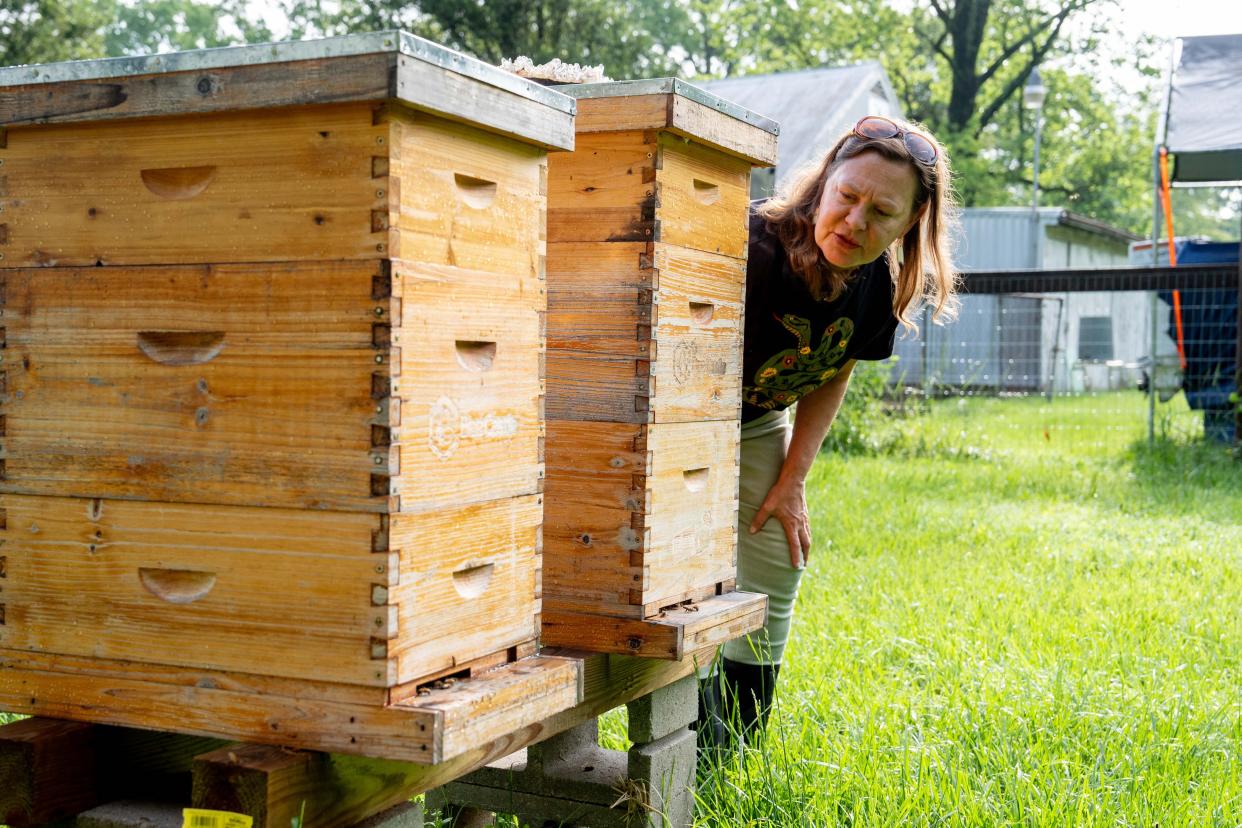
It started with a Ford Escape and some gardening.
Now Noah Curtis's one-year-old business, Pineal — which offers various gardening services and trade stations — has bloomed, quickly catching on across the city.
Curtis was providing gardening services for a customer when the idea to create a produce and garden trade station came to mind.
The Pineal trade station is a similar concept to Little Free Library, where hosts choose to get a trade station and fill it regularly with homegrown fruits, vegetables, flowers, seeds, cuttings, eggs, honey and anything else that can be gardened or homesteaded.
"I was just doing people's gardens, helping people do veggies, flowers, stuff like that and bringing them bees and butterflies and then it was like ... if you garden, you're going to have way too much stuff, too many tomatoes, peppers, whatever you're growing ... and instead of going to waste you can just trade it for something else," Curtis said of his company's vision.
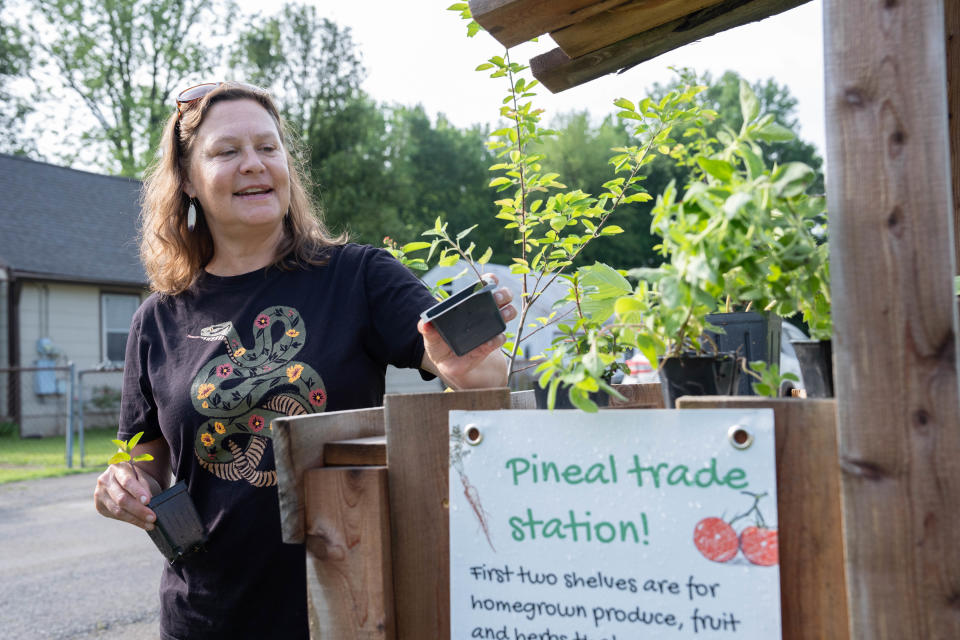
The first Pineal trade station was located on Harvard Drive in the Belknap neighborhood. Today, the company has more than 50 trade stations across Jefferson County and as far as Southern Indiana, Shelbyville, and even on base at Fort Knox, Curtis told The Courier Journal.
"I've always loved nature, I always wanted to start a business," Curtis said. "I always wanted to do something that I felt like could change the world, where I could really do something."
Robby King, the assistant director of enrichment programs at Dreams with Wings, a local nonprofit that works with individuals with disabilities, remembers that first trade stand on Harvard Drive.
Last summer King and an individual from the nonprofit were walking through the neighborhood when the trade station caught their eyes. They gladly took some free Orange Lillies from the stand and read the little information box posted on the side of each stand.
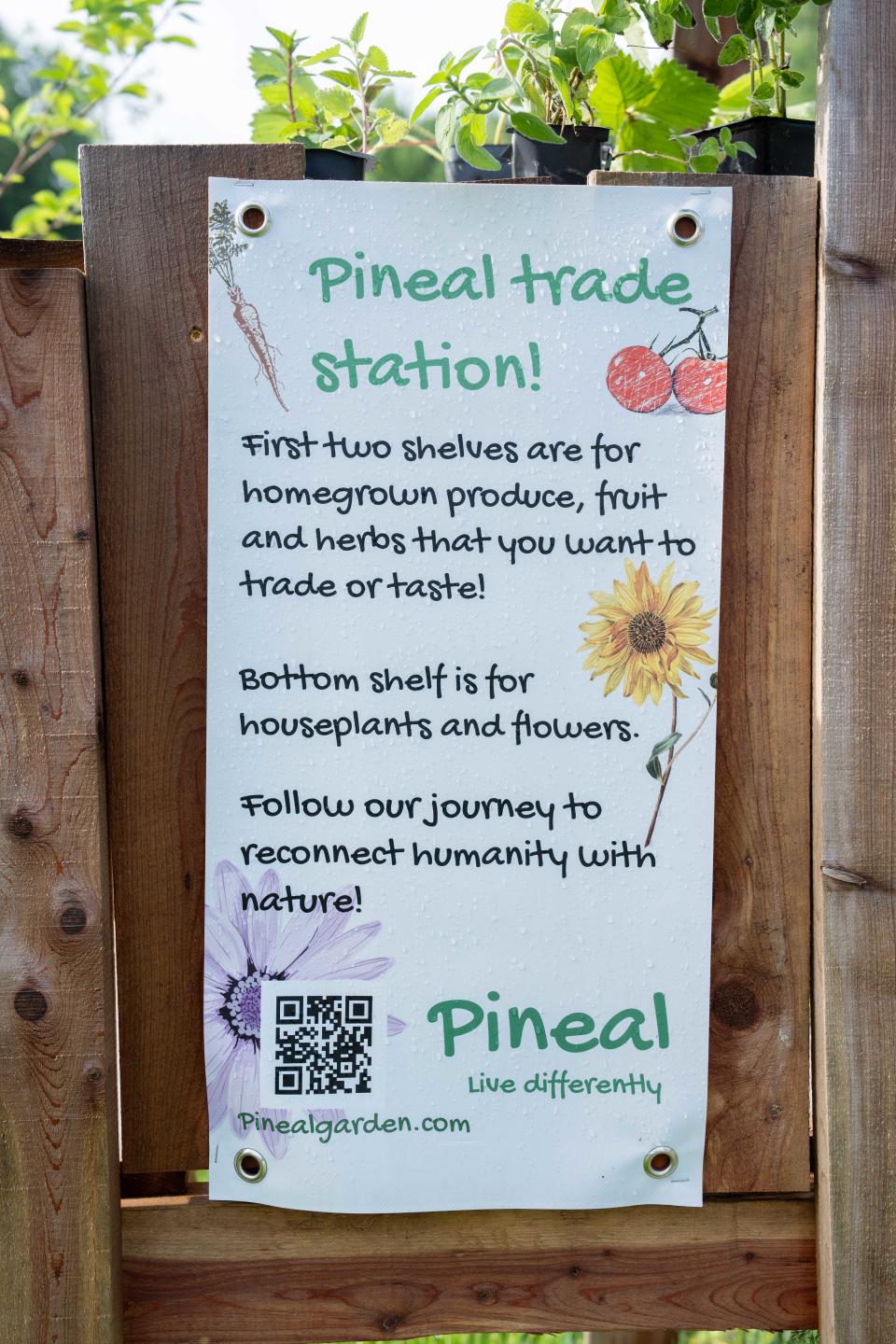
"That seemed like a really neat idea," King said of Pineal trade stations. "It just seemed like a neat way to reach out and get the community involved and seemed like a cool thing."
King, a gardener, was immediately inspired by the concept. And a few months later he had connected with Curtis to get a trade station at Dreams with Wings. Now, the nonprofit stocks its trade stations usually with vegetables and some other plants it grows in its garden.
Besides giving individuals at his nonprofit opportunities to socialize and garden, King said he thinks Pineal trade stations could ultimately work as a "supplement" to local food banks and help in areas of the city impacted by food deserts.
"I think people always have all this extra food, a lot of people like to garden and grow food, and then you do it and you don't always use it and stuff can easily go to waste," King said. "So, I think one way it benefits is being able to not throw out food and there's people who can actually use it."
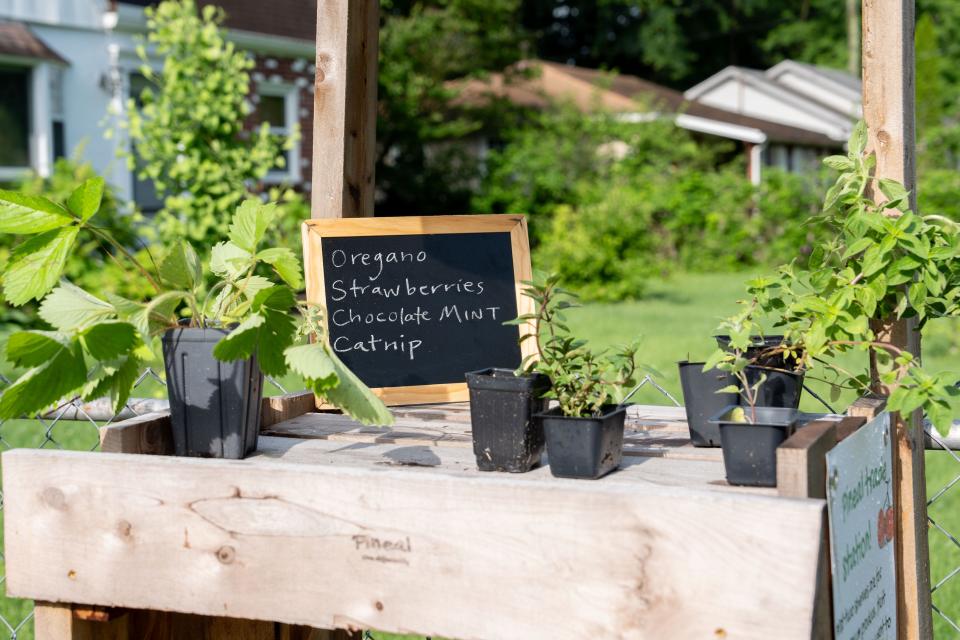
Curtis said his initial intention wasn't to serve as a gap to help with food deserts but as his for-profit business has grown, he has been excited to serve in areas with limited food access.
Paige Waggoner who lives in Newburg, has been gardening for 20 years and started homesteading with chickens and bees last year. She said she opted to get a Pineal trade station rather than go the farmers market route with her homegrown produce.
"I think it's just important to have [food] be available to everyone and I'm not necessarily in it to make money," Waggoner said. "It's a way for people to share what they have in the plant world."
Waggoner said her neighborhood lacks community gardens, but the Pineal trade station she hosts has been a "jumping off point" for communication with neighbors.
The Pineal community is also very active on Facebook with gardeners across the area sharing what their trade stations will have available, asking for growing tips, and sometimes even searching for that last homegrown ingredient to make a delicious meal.
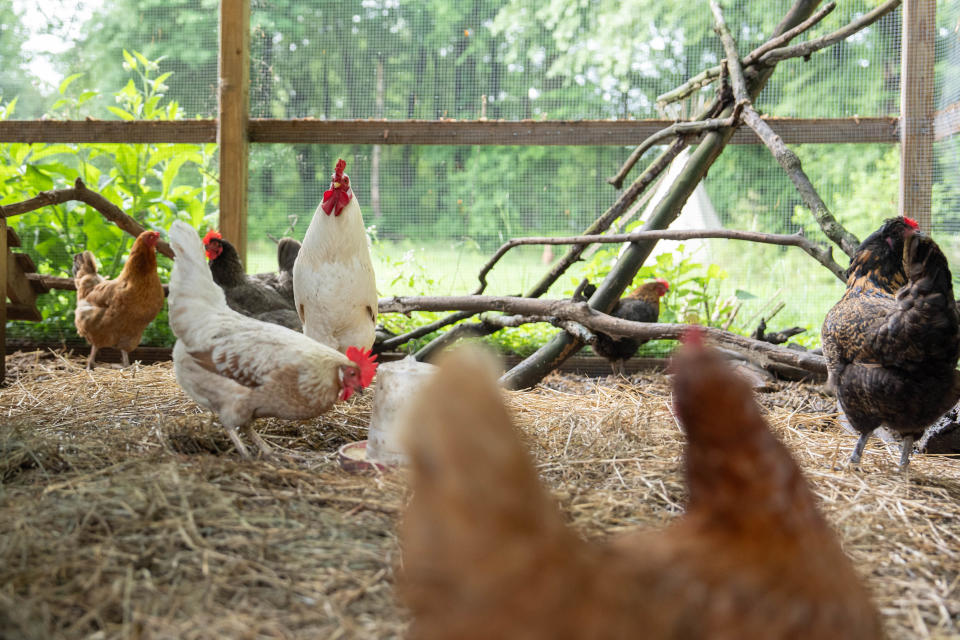
Curtis said at one point, the influx of people interested in hosting Pineal trade stations became so much that he had to close host applications to give himself enough time to hand-build each station from cedar wood in his workshop. He anticipates reopening host applications "in the next couple of weeks."
Ultimately, Curtis's dream is for Pineal to go nationwide, with a trade station located every two to three miles across the country.
"It's awesome to see Louisville getting behind it," Curtis said. "It's fun, but we're not even close yet. We've got a mission to accomplish, and I feel like we're not even close to getting it done yet."
Contact business reporter Olivia Evans at oevans@courier-journal.com or on X, the platform formerly known as Twitter at @oliviamevans_.
This article originally appeared on Louisville Courier Journal: Pineal trade stations provide free plants, produce to local community

